#nour emerges
Text
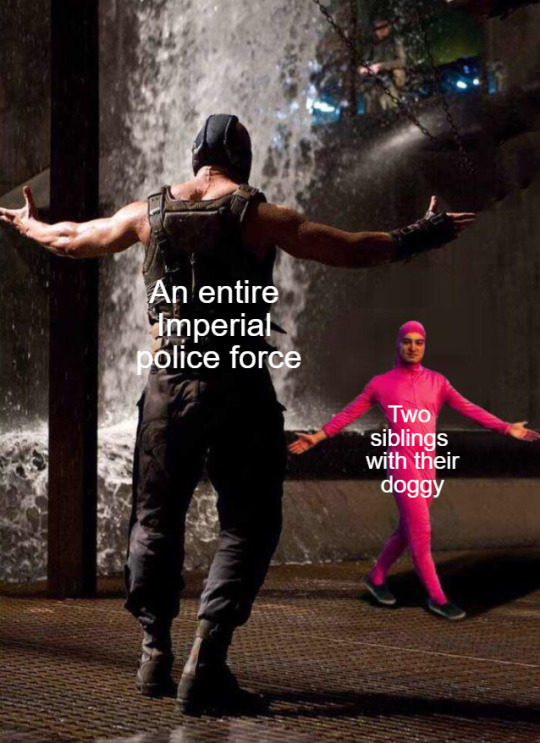
this episode in a nutshell, they're so kickass i love it
#nour emerges#tbb spoilers#tbb season 3 spoilers#the bad batch spoilers#the bad batch#tbb#tbb crosshair#tbb omega#crosshair tbb#omega tbb#star wars tbb#sw tbb#star wars the bad batch#bad batch#the bad batch memes#tbb memes#sw memes#star wars memes#bad batch crosshair#clone trooper crosshair#crosshair bad batch#crosshair the bad batch#the bad batch crosshair#bad batch omega#hunter and omega#omega bad batch#omega the bad batch#the bad batch omega#batcher#tbb s3
3K notes
·
View notes
Text
Below is known scam accounts using images or the story from this fundraiser. The scammer has now began copying the real persons name but is not them.
—
greatpuppytyphoon | chack-teol | abudallah | joyfulfacegalaxydilta | khalilhani | nour-samr |khalilhan | jovialsuitdonutai | perfectlyminiatureface | khaliilhan | optimisticalpacalady | omarkhalini | numberonegoateeeagle | nour-samr0 | jovialgoateeobservation | miniaturepostkingjaiur | boldlyweepingcloud | ma22ya | may2a | may2aa | originalanchorpenguin | Carriee22 | coolbreadgiver | carriie23 | shatsha | deepnachoobservation | almightyboha | suurzzie | babycupcakecolor | weepingpandareview
233 notes
·
View notes
Text
Aggregate news of Palestine For April 21, 2024.
Aljazeera News:
Videos show widespread damage from Israel’s deadly West Bank raids.
Blurb:
Israeli forces have killed more than a dozen Palestinians during a three-day raid on the Nur Shams refugee camp, which has left the occupied West Bank city of Tulkarem in ruins. (Video embedded in article)
Nearly 200 bodies found in mass grave at hospital in Gaza’s Khan Younis
Excerpt:
Palestinian civil defence crews have uncovered a mass grave inside the Nasser Medical Complex in Gaza’s Khan Younis, with 180 bodies recovered so far, Al Jazeera has learned, as Israel has continued bombardment of the devastated coastal enclave for more than six months.
[...]
In a statement late on Saturday, Palestinian emergency services said: “Our teams continue their search and retrieval operations for the remaining martyrs in the coming days as there are still a significant number of them.”
[...]
Israel’s war on Gaza has killed more than 34,000 Palestinians, according to local health officials, devastated Gaza’s two largest cities and left a swath of destruction across the territory.
At least two-thirds of the casualties are children and women. It also says the real toll is likely higher as many bodies are stuck beneath the rubble left by air strikes or are in areas that are unreachable for medics.
Eye on Palestine:

[Image from video, Many Palestinians holding covered dead bodies during a packed open-air funeral]
The funeral of the Palestinians who were killed by the occupation forces in Nour Shams camp in Tulkarm. (HishamAbuShadrah from instagram, reposted on Eye On Palestine)
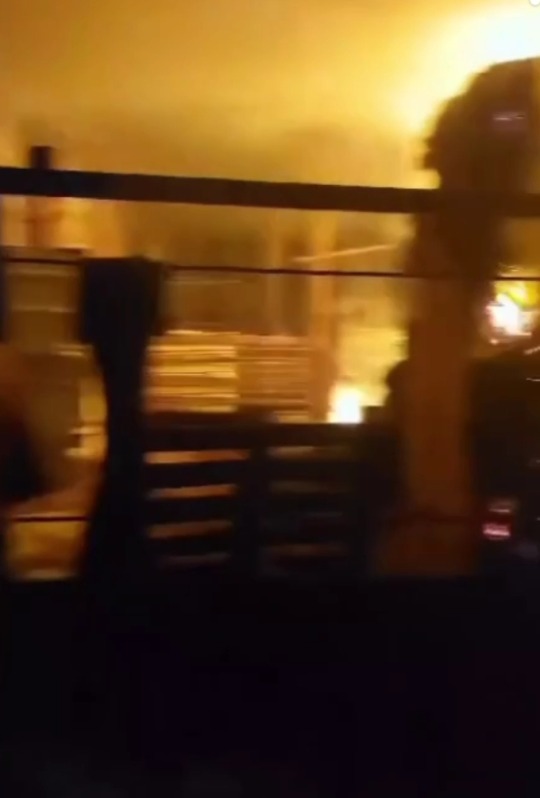
[Image of building on fire, from video]
Israeli settlers attacked the village of Burqa, east Ramallah.
مستوطنون يهاجمون قرية برقة شرق رام الله
(From Eye on Palestine)
CNN:
Israel concludes deadly West Bank raid as war devastates Gaza.
Summary blurb:
The US House of Representatives has approved $26.4 billion in aid to Israel, as part of a wider package of foreign aid, which still needs to pass the Senate.
The Israeli military concluded one of its largest offensives in the occupied West Bank since October 7 on Sunday, saying it killed 10 "terrorists." The Palestinian health ministry and Wafa news agency said 14 people, including a child, were killed in the raid, which left a path of destruction.
Elsewhere in the West Bank, Israeli settlers killed an ambulance driver trying to transport Palestinians who had been attacked, according to the Palestine Red Crescent Society. A spike in violence by extremist settlers in the occupied territory has led to more sanctions by the US and EU.
Strikes between Israel and Iran this month spiked fears of a widening regional conflict in the Middle East, but the two sides appear to be stepping back for now.
51 notes
·
View notes
Text
Resources Part 19
Masterpost - Donate if you can, otherwise Please Share! Every Dollar counts!
https://gofund.me/45f75a46
https://gofund.me/d2db3600
https://gofund.me/b96fa723 (https://www.paypal.com/paypalme/RAMZIZourob?fbclid=PAAab8kJquUXmTlpRWnv0IdB05KykCVqmI9nZgfVx0gN5k3ZA729mophX3yjw_aem_Afdrihxx3Ox34nz7B-Qz2V6LJM965rH7HjYc11ROXcxD_dKAURZ5eKE7vdpbJdSCfQ4)
https://gofund.me/0fa5ccbc
https://gofund.me/3b7afef5
https://gofund.me/3b7afef5
https://gofund.me/b99282a9
https://gofund.me/db85c453
https://gofund.me/ccc03bfa
https://gofund.me/4450f9ee
https://gofund.me/12140b2c
https://gofund.me/c433e0c7
https://gofund.me/2e4e1d9e
http://gofund.me/31b3b62
https://gofund.me/072ad2d1
https://gofund.me/75299cf0
https://gofund.me/427ba503
https://gofund.me/067beb56
https://gofund.me/64fd6853
https://gofund.me/71b904de
https://gofund.me/e449d1f0
https://gofund.me/fba8f9e7
https://gofund.me/072ad2d1
https://gofund.me/75299cf0
https://gofund.me/427ba503
https://gofund.me/067beb56
https://gofund.me/64fd6853
https://gofund.me/81977160
https://gofund.me/d5bca57a
https://gofund.me/8eda6700
https://gofund.me/4450f9ee
https://gofund.me/8e4a2c97
https://gofund.me/a8f4499f
https://gofund.me/072ad2d1
https://gofund.me/75299cf0
https://gofund.me/427ba503
https://gofund.me/067beb56
https://gofund.me/64fd6853
https://gofund.me/81977160
https://gofund.me/d5bca57a
https://gofund.me/8eda6700
https://gofund.me/4450f9ee
https://gofund.me/8e4a2c97
https://gofund.me/474f1737
https://gofund.me/5a28030e
https://gofund.me/6fd33b2c
https://gofund.me/072ad2d1
https://gofund.me/75299cf0
https://gofund.me/427ba503
https://gofund.me/067beb56
https://gofund.me/64fd6853
https://gofund.me/81977160
https://gofund.me/d5bca57a
https://gofund.me/8eda6700
https://gofund.me/4450f9ee
https://gofund.me/8e4a2c97
https://gofund.me/474f1737
https://gofund.me/5a28030e
http://gofundme.com/f/hometaxsd
https://gofund.me/50ce7d27
http://Paypal.me/hometax
launchgood.com/FTFYemenSyriaPalestine
http://revolut.me/hussiiii
https://gofund.me/b6bd6333
https://t.co/hH4AOcksmd
http://gofund.me/8f55755b
https://paypal.me/sajaalakad?country.x=SA&locale.x=ar_EG
http://Paypal.me/hometax
https://t.co/eHXcQ6k8n2
https://t.co/eJv7N0Ed0P
https://t.co/eJv7N0Ed0P
gofund.me/f49e5a5a
http://gofund.me/f49e5a5a
https://t.co/4OBbQjMttF
https://gofund.me/1dd912a4
https://t.co/XYQMFEDV06
gofund.me/059c6454
gofund.me/dd34d6dc
https://www.gofundme.com/f/lifeline-of-family-in-gaza-by-evacuating-them
https://gofund.me/f1cbe2eb
https://www.gofundme.com/f/save-my-kids-and-evacuate-them-from-gaza
https://t.co/ruC99AZu7C
https://t.co/SnQMgM0axq
https://t.co/1ikdtCP0Lc
http://paypal.me/Taysir231
https://t.co/ub73rLIEfR
https://t.co/zxQOz2p1c3
https://gofund.me/69e14222
https://gofund.me/8016a1c6
https://gofund.me/fcc72694
https://gofund.me/29b75671
https://gofund.me/23012c3a
https://gofund.me/4ee75026
https://gofund.me/da873ba1
#free palestine#palestine#free gaza#save palestine#gaza strip#from the river to the sea palestine will be free#gaza genocide#save gaza#palestine news#gaza#share#news on gaza#donate#humanitarian aid#social justice#stand with palestine#aid#gaza news#support palestine#gaza donation#palestine donation#donation link#donation links#aid for palestine#aid palestine#direct aid#palestine aid#aid for gaza#Gaza aid#mutual aid
15 notes
·
View notes
Text
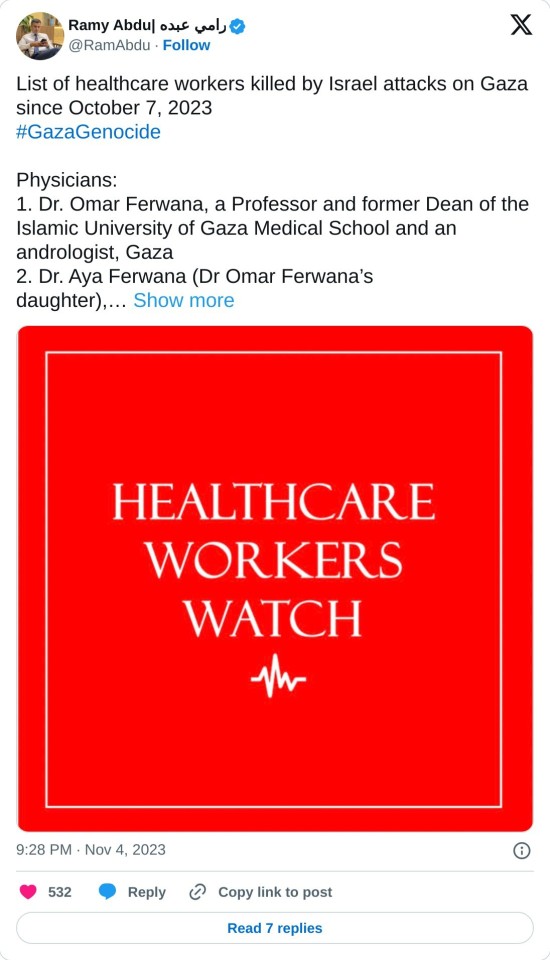
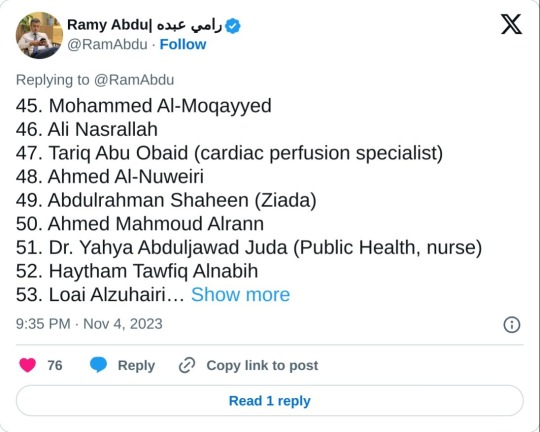
List of healthcare workers killed by Israel attacks on Gaza since October 7, 2023
Physicians:
Dr. Omar Ferwana, a Professor and former Dean of the Islamic University of Gaza Medical School and an andrologist, Gaza
Dr. Aya Ferwana (Dr Omar Ferwana’s daughter), a family medicine specialist, Gaza
Dr. Medhat Saidam, a senior burn and plastic surgeon, Shifa Hospital, Gaza and MSc in Burn Care alumnus from Queen Mary University of London
Dr. Mohammed Dabour, a consultant pathologist and dean of pre-clinical medicine at the Islamic University of Gaza Medical School
Dr. Tamer Al-Khayyat, an anesthesiologist and intensivist, European Gaza Hosptial, Rafah
Dr. Mahmoud Al-Khayyat, an internist in Rafah and Dr Tamer Al-Khayyat’s father
Dr. Razan Al-Rakhawi (Dr Tamer Al-Khayyat’s wife), an obstetric and gynecologist, Emirati Women’s Hospital, Rafah
Dr. Sereen Al-Attar a consultant obstetric and gynecologist at Nasser Hospital, Khan Younis and an Assistant Professor at the Islamic University of Gaza Medical school
Dr. Saeed Drabieh, a urology resident, Shifa Hospital
Dr. Mohammed Al-Samarai, Iraqi volunteer intern physician
Dr. Rafat Abou Foul, radiologist, Beit Hanoun Hospital
Dr. Amal Al-Maqadma, family medicine specialist, Rafah
Dr. Ibtihal Al-Astal, intern doctor, Khan Younis
Dr. Duaa Awad, emergency medicine doctor, Al-Aqsa Hospital
Dr. Moath Nabaheen, emergency medicine doctor, Al-Aqsa Hospital
Dr. Youssef Jadallah, intensivist and anesthesiologist (based in Germany, from Gaza but was visiting his family)
Dr. Inas Yousef, emergency medicine doctor, Al-Aqsa Hospital
Dr. Israa Al-Ashqar, anesthesiology resident, Shifa Hospital, Gaza
Dr. Abdallah Ashour, emergency medicine doctor, Nasser Hospital, Khan Younis
Dr. Hamam El-Deeb, orthopaedic surgery resident, Shifa Hospital, Gaza
Dr. Munther Abu Sariya, consultant pediatrician, Mohammed Al-Durra Pediatric Hospital
Dr. Doaa Shammout, pediatric resident, Rantisi Hospital, Gaza
Dr. Baraa Abu Elaish, intern doctor, Gaza
Dr. Abdlallah El-Helou, general practitioner/internal medicine doctor, Indonesian/Beit Hanoun Hospital
Dr. Muhannad Ezzo Afana, general practitioner, Gaza
Dr. Mohammed Refaat Mekki,
Dentists:
Dr. Ahmed Al-Hourani
Dr. Nada Mahdi
Dr. Ibrahim Al-Dali
Dr. Bilal Lubbad
Dr. Marwa Swelim
Dr Areej Eid
Dr. Tawfiq Al-Farra
Dr. Abdallah Baghdadi
Dr. Jameel Tarazi
Dr. Maysoon Al-Nuweiri
Dr. Mona Dughmush
Dr. Noha Dughmush
Dr. Mamoun Afana
Dr. Mohammed Afana
Dr. Anis Mekki
Dr. Tasneem Abdulnabi
Medical/dental students:
Bisan Halasa
Shaimaa Saydam
Abedelrahman Abu Shammala
Nour Al-Ashqar
Yaseen Al-Akhras
Osama Abu Safia
Duha Dughmush
Haneen Al-Shannat
Abdallah Abu Jayab
Zainab Azzam
Mohammed Abu Jiadan
Medical Scientists:
Prof. Salah El-Din Zanoun
Prof. Ahmed Al-Dalo
Prof. Ameed Mushtaha (Head of laboratories department and blood banks
Nurses:
Mohammed Lubbad
Mohammed Al-Azzaiza
Ahmed Moshtaha
Rami Lubbad
Somaya Temraz
Mohammed Rafat Gomaa
Osama A'eed Abu Safiya
Saber Al-Nimnim
Mohammed Hamad
Mohammed Al-Baz
Suleiman Abu Zour
Badr Mohammed Abu Daqah
Shaimaa Rayan (Midwife)
Maryam Abou Daher
Kefah San’allah
Walaa Adwan (Midwife)
Rawaa Al-Thalathini (Midwife)
Samah Rasheed (Midwife)
Rida Al-Masri (Midwife)
Ibrahim Abou Isaac
Amjad Abou Ouda
Ibrahim Al-Farra
Aya Al-Shrafi
Tamer Al Efesh
Momen Mansour
Asmaa Al-Asar
Feras Ftaiha
Diaa Bardaweel
Rana Shalaby
Itemad Miqdad
Zainab Al-Sharafi
Hamdan Malaka
Suheer Jbara
Hassan Al-Hennawi
Sabha Al-Sherafi
Azmi Al-Jamal
Yousef Al-Shareef
Hadeel Fanqa
Emad Esleem
Enas Al-Zeen
Heba Salamah
Nuha Esleem
Amro Masoud
Hanya Qudaih
Mohammed Al-Moqayyed
Ali Nasrallah
Tariq Abu Obaid (cardiac perfusion specialist)
Ahmed Al-Nuweiri
Abdulrahman Shaheen (Ziada)
Ahmed Mahmoud Alrann
Dr. Yahya Abduljawad Juda (Public Health, nurse)
Haytham Tawfiq Alnabih
Loai Alzuhairi (Nursing student)
Saleem Abu Zour
Waleed ElMahalawi
Rola Althalathini (Midwife)
Duaa Ashour
Amer Elramlawi
Safa Zeino
Saja Doghmosh
Moayad Ezzo Afana
Ramadan Doghmosh
Moemen Arab (Nursing student)
Oun Nofal Ashour (Nursing student)
Paramedics (EMS providers):
Marwan Abou Raida
Hatem Awad
Khalil Al-Sharif
Ahmed Al-Dahman
Yousri Al-Masri
Ahmed Abdel Rahman
Mohammed Al-Ghaliz
Mohammed Ali
Iyad Salim
Abdelrahim Abou Baid
Alaa Abou Ghanima
Naji Al Fayoumi
Mohammed Qateet
Tareq Ashour
Mahmoud Abou Mashayekh
Nafeth Al-Natour
Mahmoud Othman
Mohammed ElOmour
Ibrahim Matar
Yasser Alnaseri
Physiotherapists:
Ahmed Al-Masri
Ahmed Sameh Abou Herbeed
Shaimaa Sbaih
Mayar Al-Wahidi
Ahmed Ashraf
Shahrazad Al-Akhras
Nour Ibrahim
Pharmacists:
Ahmed Al-Jerjawi
Aziz Elfarra
Afnan Al-Astal
Shereen Abou Jazar
Eman Abu Al-Jalil
Safaa Hasouna
Ibraheem Meqdad
Mohammed Ali
Maysaa Khader
Nisreen Al-Dammagh
Sally Al-Aydi (Pharmacy student at AlAzhar University)
Mohammed Al-Shannat
Lina Abu Mualaileq
Noor Ibean
Haneen Albasyouni
Amira Dahman
Rawand Albanna
Khaled Abu Ma’ala
Amal Mekki
Abdullah Altartori (Pharmacy student at AlAzhar University)
Asmaa Abu Salah (Pharmacy student at AlAzhar University)
Mohammad Alshami
Lab technicians/clinical microbiologists:
Natheer Shaban
Asmaa Hijazi
Rawan Yassin
Alia Al Hinnawi
Maryam Kabaja
Nahid Abdullatef
Mohammed Abu Karsh
Mohammed Shabaan
Riham Elkahlout
Ismail Sharaf
Taiseer Alghouti
Abdulmohsin Abu Alrous
Duaa Jad Allah
Optometrists:
Omar Khorsheed
36 notes
·
View notes
Text
[ 📹 Footage of smoke rising from a Palestinian home in the Nour al-Shams Refugee Camp, outside Tulkarm City, in the occupied West Bank, after an Israeli warplane fired several missiles into the civilian residence. ]
🇮🇱⚔️🇵🇸 🚀🏘️💥 🚨
ISRAELI OCCUPATION FIRES MISSILE INTO PALESTINIAN HOME DURING NOUR AL-SHAMS OFFENSIVE IN THE OCCUPIED WEST BANK
Occupation Forces launched an offensive into Nour al-Shams Camp, beginning on Thursday, besieging the camp and preventing emergency vehicles from reaching victims of Israeli occupation violence.
The Israeli occupation forces wounded at least 11 Palestinians in the course of their offensive, who were eventually allowed to be taken to Thabet Thabet Government Hospital, including 7 civilians who were wounded by occupation bullets, as well as 4 others who were assaulted by Zionist soldiers. Injuries ranged from light to moderate.
According to the Palestinian Ministry of Health, there were also an unidentified number of fatalities in the camp, which remains under siege at the time of publishing.
Earlier in the offensive, occupation forces killed two Palestinians, including a 15-year-old by the name of Qais Fathi Nasrallah, while local witnesses claimed at least 5 others were killed by occupation gunfire. The bodies of the dead continue to be withheld by the Israeli occupation army.
At least two D9 armored bulldozers accompanied the occupation forces, which are used to destroy the local infrastructure, tearing up streets and demolishing residential buildings, while the Zionist forces break into homes, conducting searches, interrogating civilians, abusing the local population and taking over Palestinian homes to convert into temporary military bases.
Zionist snipers have also posted on nearby rooftops, targeting civilians and paramedics that are prevented from entering the camp, while an Israeli warplane fired several missiles into at least one Palestinian residence.
#source
#videosource
@WorkerSolidarityNews
#west bank#occupied palestine#occupied west bank#zionist crimes#israeli occupation forces#israeli occupation#israel#palestine#palestine news#palestinians#israel news#free palestine#end the occupation#israel palestine conflict#war#middle east#occupation#israeli terrorism#israeli war crimes#war crimes#crimes against humanity#ethnic cleansing#politics#news#geopolitics#world news#global news#international news#breaking news#current events
13 notes
·
View notes
Text
Fundraisers to help people escape Palestine Mega-Masterpost
Help Evacuate My Family From Gaza
Raghada's Family Evacuation
Help evacuate the Eljamala family from Gaza
A Journey of Hope for a Family in Gaza
Help Kareem get his family from Gaza to safety
Evacuate my friend and his family from Gaza
Help to save my mother's life und families in Gaza
Help Nour and her children escape from Gaza
Help Our Journalist Colleagues in Gaza
Help Aya Hamada's Family Find Safety Beyond Gaza
Help me and my family to escape from Gaza war!
Let’s get Jaffer and his family to safety
Help my family to escape the horrors of Gaza war
Help Ehab with cancer treatment and evacuate Gaza
Helping us leaving out of G.a.z.a
Seeking Help to Evacuate My Family in Gaza
Help Me Save Ahmed and His Family !!
Helping my family through Rafah to safety in Egypt
Urgent Help for My family in Rafah
Evacuate my family to safety from the war on Gaza.
Save my son Karim from Gaza. He needs treatment!
HELP EVACUATE MY BROTHER AND FAMILY FROM GAZA
Help Ashraf and his family evacuate from Gaza
Emergency Appeal to save my family in Gaza
Help what’s left of Karim’s family escape
URGENT Evacuation of 7 children & their mom - Gaza
Help Fund for Lama and her family leave Gaza
Help Karam's family escape Gaza, Palestine
Help Evacuate Amal’s family from Gaza
URGENT support to evacuate My family from G@Z@
Chef Ahmad and his family Exit Aid & Medical Care
Help Ahmad And His Family To Evacuate Gaza
Help Fayrouz And Her Family Get Out Of Rafah
Help my grandparents to evacuate Gaza
Help my family leave Gaza and arrive Canada
Escaping Genocide :Gaza Evacuation for My Family.
Help Souhib Flee Gaza's War
Help me get my family out of Gaza
Help the Zughbur family escape Gaza
Assist urgently in safe evacuation of my family
▶Assisting My Family's Journey to Safety from Gaza
Help Asmaa's family evacuate from Rafah (Gaza)
Help the Alshaer Family Evacuate from Gaza
Emergency: Help Abdallah's family evacuate Gaza
Help evacuate Mahmoud's family out of Gaza war
Help Samia Alatrash leave Rafah, Palestine
Help Family with Children Survive the War in Gaza
Please Help my Friend and his Family Evacuate Gaza
Rebuilding a Safe Place for Moe Kouta and Family
Help my brother and sister evacuate from Rafah
Help EzzEddin Family afford food & evacuate Rafah
Help Lena and her family escape Rafah (URGENT)
EMERGENCY EVACUATION FROM RAFAH
Emergency Fund: Help Family Flee from Rafah
Help a Family in Rafah, Gaza Strip - Mutual Aid
Help evacuate my family out of Gaza
Help me Evacuate my Kids from Gaza war
Help Diaa’s family evacuate from Gaza
Help My Family Evacuate Gaza
URGENT EVACUATE: GazaWar Destroyed My Family Again
HELP OSAMA TO GET OUT OF RAFAH
Help Hosam & his 2 lil brothers Evacuate Rafah!
Help evacuate my family from Rafah
Help My Friends' beloved Family Escape Gaza
Help My Family Escape War in Gaza
Help my family to evacuate GAZA
Help Abood and His Family Leave Gaza
Help my family escape the war in Gaza
Help my family to escape GAZA
URGENT: Help Evacuate Loai's Family from Gaza War
Help Zinh and her Family to be safe in Gaza!
Help our family evacuate Gaza and find safety
Safe Passage for Nadin
Evacuate my family Gaza
Protect our friend’s loved ones
Rescuing my family from Gaza’s war zone
Emergency: Help Sukar’s family get out of Gaza
Help to Evac Moh's Family
Help A Family From Gaza To Have A Secure Life
Help save my family from Gaza genocide & evacuate
SOS_Save My Family
Help Mahmoud and His Family Evacuate Rafah
Help my family evacuate Gaza to Canada
Help my family in Gaza evacuate to safety
Help Mourtaja Family Escape War in Gaza
Cry for Help from Gaza
Save Momin Aburaida’s kids in GAZA
Supporting Two Gazan Families Who Lost Their Homes
Support To Evacuate My Friend’s Family From Gaza
Help Hatem and His Family Evacuate Gaza to Safety
Help yousef evacuate to saftey
Urgent Help For My Family in Rafah
Help evacuate family before ground attack on Rafah
Fundraiser for my two friends trapped in Rafah
Help me save my family from Rafah Gaza
Help Evacuate My Niece and Nephew from Rafah
URGENT : HELP ME AND MY FAMILY ESCAPE GAZA
Help evacuate Deema’s family
Help Jumana evacuate from Gaza to Australia
#just feel so helpless by how many there are#my heart breaks for every single one#this doesn't include all of them#just scroll and randomly pick one if you can that's what I did#rae’s rambles#palestine#free gaza#current events#gaza#ceasefire#free palestine#gazaunderattack#rafah#save rafah#all eyes on rafah
11 notes
·
View notes
Text
17 Jan 2024: Miscarriages in Gaza Have Increased 300% Under Israeli Bombing
Humanitarian agencies say women and menstruating people are also facing alarming rates of severe infections due to Israel's blockade of supplies and water.
Shortly after Israel’s bombardment of the Gaza Strip began in October, global health groups raised alarms that there was no longer anywhere safe for pregnant women to give birth. More than three months into the siege, conditions have only worsened, and pregnant and menstruating people are especially at risk. Health care workers report a 300% increase in the miscarriage rate among pregnant people in Gaza since Israel’s attacks began three months ago, Nour Beydoun, CARE’s regional advisor on protection and gender in emergencies, told Jezebel.
The lack of supplies due to Israel’s ongoing blockade has resulted in pregnant women struggling to carry healthy pregnancies; higher risk of infection and death after giving birth or having c-sections; increased infant mortality; and a range of other deadly sexual and reproductive health outcomes. Beydoun told Jezebel that CARE has heard about “significant weight loss” among pregnant women “due to the limited access to food, to proper nutrition,” resulting in “poor personal health and also in poor fetal and newborn health.”
Ammal Awadallah, executive director of the Palestinian Family Planning & Protection Association, told Jezebel that “all pregnant women are now at severe risk of delivering in unsafe conditions, being put in situations where they are giving birth in cars, tents, and shelters.” At health centers, pregnant women are only admitted “when fully dilated and are dismissed within a few hours after giving birth, due to the overcrowded facilities and extremely limited resources.” On top of all this, Beydoun said that many women must make the journey to hospitals or health centers—where they could still be turned away due to lack of capacity—on foot.
Due to limited resources, Awadallah says many c-sections and births “are being performed without basic medical supplies, or anesthesia and without any postnatal care.” Few are able to get or attend appointments with their doctors after giving birth, and many “have no option other than to stay in the overcrowded shelters.” As a result, a lot of “women are being dangerously exposed to infections,” the the risk of maternal mortality is high: “There’s now so much risk of hemorrhaging and infections without the right tools and medicines,” Beydoun said. And the many women forced to undergo emergency c-sections also face cesarean wound infections due to lack of clean medical tools for the procedure.
7 notes
·
View notes
Text
Miscarriages in Gaza Have Increased 300% Under Israeli Bombing
**And these deaths aren't included in the running count of Palestinians killed**
At Al-Emirati Hospital in Rafah, a woman identified by Doctors Without Borders as Maha sought a delivery room as she began going into labor, but was denied: “All the delivery rooms were full,” an emergency coordinator working with the humanitarian group recounted in a news release published Wednesday. Maha “knew something wasn’t right,” and that she needed care. But without other options, she returned to her tent. Her newborn son died as she gave birth to him in the bathroom near her tent. “Without this war, she would not have lost her son,” the emergency coordinator wrote.
Shortly after Israel’s bombardment of the Gaza Strip began in October, global health groups raised alarms that there was no longer anywhere safe for pregnant women to give birth. More than three months into the siege, conditions have only worsened, and pregnant and menstruating people are especially at risk. Health care workers report a 300% increase in the miscarriage rate among pregnant people in Gaza since Israel’s attacks began three months ago, Nour Beydoun, CARE’s regional advisor on protection and gender in emergencies, told Jezebel.
The lack of supplies due to Israel’s ongoing blockade has resulted in pregnant women struggling to carry healthy pregnancies; higher risk of infection and death after giving birth or having c-sections; increased infant mortality; and a range of other deadly sexual and reproductive health outcomes. Beydoun told Jezebel that CARE has heard about “significant weight loss” among pregnant women “due to the limited access to food, to proper nutrition,” resulting in “poor personal health and also in poor fetal and newborn health.”
Ammal Awadallah, executive director of the Palestinian Family Planning & Protection Association, told Jezebel that “all pregnant women are now at severe risk of delivering in unsafe conditions, being put in situations where they are giving birth in cars, tents, and shelters.” At health centers, pregnant women are only admitted “when fully dilated and are dismissed within a few hours after giving birth, due to the overcrowded facilities and extremely limited resources.” On top of all this, Beydoun said that many women must make the journey to hospitals or health centers—where they could still be turned away due to lack of capacity—on foot.
Due to limited resources, Awadallah says many c-sections and births “are being performed without basic medical supplies, or anesthesia and without any postnatal care.” Few are able to get or attend appointments with their doctors after giving birth, and many “have no option other than to stay in the overcrowded shelters.” As a result, a lot of “women are being dangerously exposed to infections,” the the risk of maternal mortality is high: “There’s now so much risk of hemorrhaging and infections without the right tools and medicines,” Beydoun said. And the many women forced to undergo emergency c-sections also face cesarean wound infections due to lack of clean medical tools for the procedure.
These conditions are similarly dangerous for newborns, who are “dying from a lack of sterile environment and specialized staff,” Beydoun said.
Of course, this is all assuming that pregnant women are able to be admitted into hospitals at all, where “priority is often not for women going into labor” and beds are rarely available for them, Awadallah said. The conditions at the Al-Emirati field hospital in Rafah demonstrate how overworked hospitals in Gaza have become: Beydoun said the hospital was “initially designed to receive 30 to 40 outpatient consultations from pregnant women on a daily basis—now they handle 300 to 400 cases daily.” The hospital has just one operating room and is “designed to have two to three c-section deliveries per day—now they’re delivering 20 daily.”
In October, it was estimated that at least 50,000 women in Gaza were pregnant. The International Planned Parenthood Federation reported at the time that more women were miscarrying or going into early labor from shock and stress under bombardment. And it’s not yet clear how many of those thousands of pregnant women in Gaza are among the estimated 24,000 Palestinians who have been killed in Israel’s attacks, or among the thousands who remain missing. In its charge of genocide against Israel at the International Court of Justice, South Africa alleges that “two mothers are estimated to be killed every hour in Gaza.” (The Israeli death toll from Hamas attacks on October 7 stands at 1,139. Hamas continues to hold roughly 200 people hostage.)
After months of Israeli bombardment, the health care system in Gaza is “completely collapsing,” Doctors Without Borders warned last month. A CNN investigation published on January 12 found at least 20 of 22 hospitals in northern Gaza had been damaged or destroyed in the first two months of Israel’s war on Gaza, and 14 were directly attacked by Israeli forces. The World Health Organization reported in December that no “functional” hospitals remained in northern Gaza, and only nine out of 36 hospitals in the south were even partially functioning to serve Gaza’s population of 2 million. On Tuesday evening, journalists in Gaza reported that Israeli forces had closed in on and were attacking Nasser Hospital.
Birth complications are just one threat people who menstruate are facing: As the independent Gaza-based journalist Bisan Owda highlighted earlier this month, period supplies are nearly impossible to find. According to Awadallah, few people “can find a pharmacy nearby,” let alone one that still stocks sanitary products. Many are forced to use strips of cloth that they can’t wash due to lack of water, plastic bags in lieu of pads, or, “if they’re lucky enough,” cut-up baby diapers. One hospital worker told Owda that “each day” she encounters “numerous instances of fever directly linked to vaginal yeast infections, arising from inadequate hygiene and the absence of feminine products.” Another told her that the “scarcity of basic products results in more hospital visits, longer hospital stays, and worsened conditions” from infection and disease. Severe water shortages and overcrowded public bathrooms further contribute to “the high number of reproductive and urinary tract infections,” Awadallah said.
On top of that, due to “the suffering, anxiety, and deteriorating psychological status of the women in the [Gaza] Strip,” Awadallah said a large proportion are now “getting their period a number of times during the month” instead of once.
This lack of water and malnutrition as a result of Israel’s blockade have been especially detrimental for nursing mothers: Women are struggling to breastfeed their babies as they aren’t able to produce milk “without having water to drink nor sufficient food to eat,” Awadallah said. In a letter provided by CARE, Alaa, a mother in Gaza, wrote that “no one is eating enough,” and “it is usually the mothers who eat last” in order to feed their children first. “I slept on an empty stomach every night so my children wouldn’t go hungry,” Alaa wrote. Back in October, Al-Aqsa Hospital told the Associated Press that many mothers in Gaza were forced to mix baby formula with contaminated water, “[contributing] to the rise in critical cases” in the hospital’s neonatal ward.
Barriers to basic health care and resources aren’t new for the women and girls of Gaza, Awadallah told Jezebel: “Palestinian women and girls were already living in a severely vulnerable environment, in an area which has been blockaded from essential basic health services and products for more than a decade.” But the crisis has become more dire than ever, and “without a full and immediate ceasefire, and the unimpeded delivery of humanitarian aid across all parts of Gaza, maternal and neonatal deaths will continue to rise.”
#israel is committing genocide#genocide#miscarriage#infant mortality#infection#humanitarian crisis#save palestine#israel is an apartheid state#free palestine 🇵🇸#gaza under attack#illegal occupation#israeli war crimes#ethnic cleansing#apartheid#collective punishment#collateral damage#spread awareness#stand with palestine#stand up for humanity#stolen lives#stolen futures#stolen land#doctors without borders#this was never about hamas
3 notes
·
View notes
Text
Miscarriages in Gaza Have Increased 300% Under Israeli Bombing
At Al-Emirati Hospital in Rafah, a woman identified by Doctors Without Borders as Maha sought a delivery room as she began going into labor, but was denied: “All the delivery rooms were full,” an emergency coordinator working with the humanitarian group recounted in a news release published Wednesday. Maha “knew something wasn’t right,” and that she needed care. But without other options, she returned to her tent. Her newborn son died as she gave birth to him in the bathroom near her tent. “Without this war, she would not have lost her son,” the emergency coordinator wrote.
Shortly after Israel’s bombardment of the Gaza Strip began in October, global health groups raised alarms that there was no longer anywhere safe for pregnant women to give birth. More than three months into the siege, conditions have only worsened, and pregnant and menstruating people are especially at risk. Health care workers report a 300% increase in the miscarriage rate among pregnant people in Gaza since Israel’s attacks began three months ago, Nour Beydoun, CARE’s regional advisor on protection and gender in emergencies, told Jezebel.
The lack of supplies due to Israel’s ongoing blockade has resulted in pregnant women struggling to carry healthy pregnancies; higher risk of infection and death after giving birth or having c-sections; increased infant mortality; and a range of other deadly sexual and reproductive health outcomes. Beydoun told Jezebel that CARE has heard about “significant weight loss” among pregnant women “due to the limited access to food, to proper nutrition,” resulting in “poor personal health and also in poor fetal and newborn health.”
Ammal Awadallah, executive director of the Palestinian Family Planning & Protection Association, told Jezebel that “all pregnant women are now at severe risk of delivering in unsafe conditions, being put in situations where they are giving birth in cars, tents, and shelters.” At health centers, pregnant women are only admitted “when fully dilated and are dismissed within a few hours after giving birth, due to the overcrowded facilities and extremely limited resources.” On top of all this, Beydoun said that many women must make the journey to hospitals or health centers—where they could still be turned away due to lack of capacity—on foot.
Due to limited resources, Awadallah says many c-sections and births “are being performed without basic medical supplies, or anesthesia and without any postnatal care.” Few are able to get or attend appointments with their doctors after giving birth, and many “have no option other than to stay in the overcrowded shelters.” As a result, a lot of “women are being dangerously exposed to infections,” the the risk of maternal mortality is high: “There’s now so much risk of hemorrhaging and infections without the right tools and medicines,” Beydoun said. And the many women forced to undergo emergency c-sections also face cesarean wound infections due to lack of clean medical tools for the procedure.
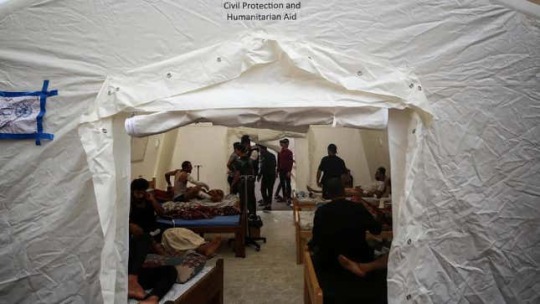
Of course, this is all assuming that pregnant women are able to be admitted into hospitals at all, where “priority is often not for women going into labor” and beds are rarely available for them, Awadallah said. The conditions at the Al-Emirati field hospital in Rafah demonstrate how overworked hospitals in Gaza have become: Beydoun said the hospital was “initially designed to receive 30 to 40 outpatient consultations from pregnant women on a daily basis—now they handle 300 to 400 cases daily.” The hospital has just one operating room and is “designed to have two to three c-section deliveries per day—now they’re delivering 20 daily.”
In October, it was estimated that at least 50,000 women in Gaza were pregnant. The International Planned Parenthood Federation reported at the time that more women were miscarrying or going into early labor from shock and stress under bombardment. And it’s not yet clear how many of those thousands of pregnant women in Gaza are among the estimated 24,000 Palestinians who have been killed in Israel’s attacks, or among the thousands who remain missing. In its charge of genocide against Israel at the International Court of Justice, South Africa alleges that “two mothers are estimated to be killed every hour in Gaza.” (The Israeli death toll from Hamas attacks on October 7 stands at 1,139. Hamas continues to hold roughly 200 people hostage.)
After months of Israeli bombardment, the health care system in Gaza is “completely collapsing,” Doctors Without Borders warned last month. A CNN investigation published on January 12 found at least 20 of 22 hospitals in northern Gaza had been damaged or destroyed in the first two months of Israel’s war on Gaza, and 14 were directly attacked by Israeli forces. The World Health Organization reported in December that no “functional” hospitals remained in northern Gaza, and only nine out of 36 hospitals in the south were even partially functioning to serve Gaza’s population of 2 million. On Tuesday evening, journalists in Gaza reported that Israeli forces had closed in on and were attacking Nasser Hospital.
Birth complications are just one threat people who menstruate are facing: As the independent Gaza-based journalist Bisan Owda highlighted earlier this month, period supplies are nearly impossible to find. According to Awadallah, few people “can find a pharmacy nearby,” let alone one that still stocks sanitary products. Many are forced to use strips of cloth that they can’t wash due to lack of water, plastic bags in lieu of pads, or, “if they’re lucky enough,” cut-up baby diapers. One hospital worker told Owda that “each day” she encounters “numerous instances of fever directly linked to vaginal yeast infections, arising from inadequate hygiene and the absence of feminine products.” Another told her that the “scarcity of basic products results in more hospital visits, longer hospital stays, and worsened conditions” from infection and disease. Severe water shortages and overcrowded public bathrooms further contribute to “the high number of reproductive and urinary tract infections,” Awadallah said.
On top of that, due to “the suffering, anxiety, and deteriorating psychological status of the women in the [Gaza] Strip,” Awadallah said a large proportion are now “getting their period a number of times during the month” instead of once.
This lack of water and malnutrition as a result of Israel’s blockade have been especially detrimental for nursing mothers: Women are struggling to breastfeed their babies as they aren’t able to produce milk “without having water to drink nor sufficient food to eat,” Awadallah said. In a letter provided by CARE, Alaa, a mother in Gaza, wrote that “no one is eating enough,” and “it is usually the mothers who eat last” in order to feed their children first. “I slept on an empty stomach every night so my children wouldn’t go hungry,” Alaa wrote. Back in October, Al-Aqsa Hospital told the Associated Press that many mothers in Gaza were forced to mix baby formula with contaminated water, “[contributing] to the rise in critical cases” in the hospital’s neonatal ward.
Barriers to basic health care and resources aren’t new for the women and girls of Gaza, Awadallah told Jezebel: “Palestinian women and girls were already living in a severely vulnerable environment, in an area which has been blockaded from essential basic health services and products for more than a decade.” But the crisis has become more dire than ever, and “without a full and immediate ceasefire, and the unimpeded delivery of humanitarian aid across all parts of Gaza, maternal and neonatal deaths will continue to rise.”
2 notes
·
View notes
Text
Celestial Glamour: Nour Fathallah's Evening Gowns that Dazzle Under the Stars
In the realm of fashion, where style meets celestial splendor, Nour Fathallah has emerged as a luminary designer, capturing the essence of the night sky in her exquisite evening gowns. This article delves into the celestial glamour that defines her creations, with a special focus on the allure of long evening gowns that enchant under the stars.
Celestial Glamour in Fashion
As trends in fashion evolve, celestial-themed designs have taken the industry by storm. From twinkling stars to ethereal galaxies, fashionistas are embracing the cosmic allure in their wardrobes. Nour Fathallah stands out in this celestial renaissance, infusing her evening gowns with a touch of the cosmos. The interplay of celestial elements in her designs adds a captivating dimension to the world of high fashion.

Nour Fathallah's Signature Style
Nour Fathallah's designs are characterized by their unique blend of sophistication and celestial mystique. The careful craftsmanship and attention to detail in each gown reflect the designer's dedication to creating wearable works of art. With a focus on intricate beading, celestial patterns, and flowing silhouettes, Fathallah's evening gowns are a testament to her distinctive signature style.
The Allure of Evening Dresses
Long evening gowns have always held a special place in the realm of formal attire. The graceful flow of the fabric, combined with the celestial embellishments, creates a captivating allure. These gowns are not merely garments; they are statements of elegance, designed to make a lasting impression at any evening soirée. Nour Fathallah's creations, in particular, elevate the allure of evening dresses to new heights.
Versatility for Weddings
When it comes to choosing the perfect attire for weddings, the search for the ideal evening dress can be both exciting and challenging. Nour Fathallah's celestial-themed gowns offer a versatile and enchanting option for brides and wedding guests alike. The incorporation of celestial elements adds a touch of magic to the wedding festivities, making these gowns a popular choice for those seeking celestial glamour on their special day.
Embracing Sleeved Elegance
For those who appreciate a touch of modesty and timeless elegance, long evening gowns with sleeves have become a sought-after choice. Nour Fathallah understands the allure of sleeved dresses, seamlessly integrating sleeves into her celestial-inspired designs. The result is a collection that not only dazzles under the stars but also caters to those who prefer a more covered yet stylish look.
Navigating the Options
Whether it's a grand gala or an intimate gathering, Fathallah's collection offers a diverse range of options for women seeking the perfect party dress. From sleek and form-fitting to flowing and ethereal, the designer's repertoire encompasses styles that suit various preferences. The celestial glamour is not confined to a singular look, allowing fashion enthusiasts to explore and find the gown that resonates with their style.
Conclusion
In conclusion, Nour Fathallah's evening gowns stand as celestial works of art, captivating hearts with their enchanting designs. From the allure of long evening gowns to the versatility for weddings and the embrace of sleeved elegance, her collection caters to the diverse preferences of the modern woman. As we navigate the vast options in the world of fashion, Fathallah's celestial glamour continues to shine bright, reminding us that fashion is not just about attire; it's about creating moments of magic under the stars.
#women designer dresses#women evening dress#evening dresses for women#designer evening gowns#gowns for women#designer gown#party wear dress#gown design#evening gown for wedding#cocktail gown#long sleeve gowns
2 notes
·
View notes
Text
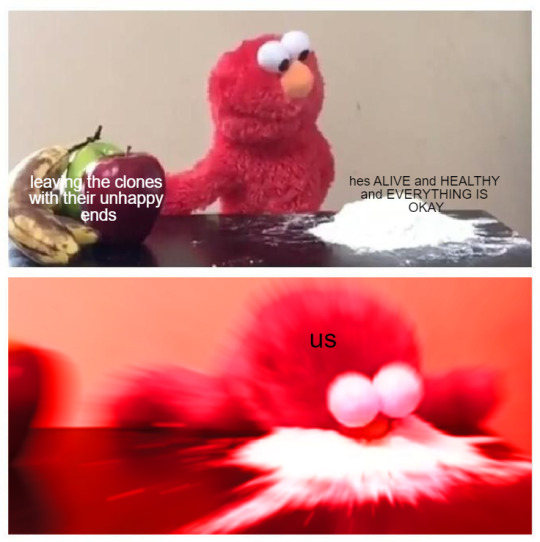
sweet sweet denial
#nour emerges#the bad batch#star wars#tbb#clone force 99#tbb crosshair#tbb tech#the clone wars#star wars the clone wars#star wars: the clone wars#the clone wars fanart#clone wars#clone troopers#captain rex#tcw#echo tbb#tbb echo#arc trooper echo#arc trooper fives#commander mayday#bad batch#star wars clones#501st#212th#commander cody#commander wolffe#sw tcw#tcw rex#tcw wolffe#tcw echo
4K notes
·
View notes
Photo

𝐎𝐅𝐅𝐄𝐑 𝐌𝐄 .
── from @nourflage .
droplets of rain tap - tap - tap against the window of the car as it weaves through the streets of monaco. the night’s air captures the light cast by a thousand windows, life gleaming within the buildings, and expectations rapidly forgotten as streetlights they pass. tap, a droplet against the window, racing downwards and off the back of the car. tap, another, merely a speck against glass before it, too, vanishes. tap, a third ── fourth, fifth, ephemeral visitors that leave a rapidly vanishing wisp of a trail behind them. much like nour and isabele themselves.
two women sit in the back of a car while a third drives, they blend into a multitude of vehicles with ease ── much like isabele melted into her surroundings during an art auction, having slipped away and taken a prized artifact for herself. a tiara tucked safely into a box, in turn concealed within her purse. she brings it out now and opens it just slightly ── enough to peek in with a cheshire - cat grin upon excited features. this is one of her first heists, and the rush of completion lives within her bloodstream as the gleam of diamonds takes residence within the shine of her eyes, reflection of all that is bright and shiny.
❛ n ── snow owl, ❜ she rapidly amends, giddy laughter drowning out the first trace of a dangerous slip - up, ❛ we did it. holy shit, we did it. ❜
❛ it isn’t over yet, isa. ❜ a hand placed over her own, it is nour who closes the box and conceals the beautifully arranged gems from view. she’s right ── of course she is. over the time they’ve shared together, isabele has quickly gleaned that nour is almost always right. she is worth every ounce of trust that isabele has given her. and nightingale, in turn, hopes to be someone snow owl can turn to. she just wants to be a good friend.
so far, so good ── they’ve steadily forged a friendship built upon the foundation of understanding. they both have debts to repay. they are on the same team, they are expected to work together … and they do. beautifully, in fact. nour’s designs fit isabele perfectly and turn her into someone who evades any recognition, isabele aids nour however she can. sometimes that means standing perfectly still while measurements are taken. others, it means sitting by nour’s side and singing along to the music played by fei’s radio station if it’ll entertain her, keep her up and working diligently. charm meets charm, elegance meets elegance, poise meets poise ── friend meets friend.
❛ perhaps that is not. however … there is something i can wrap up right now. apologies for the presentation, darling ─ i was in a bit of a rush. ❜
grin turns playful as isabele lets her purse rest upon nour’s lap and tucks right hand into her coat’s pocket. from it, she extracts a ring ── polished gold, featuring an owl’s head crowned with oak leaves. owl emerges from leaves victoriously, dazzling eyes two diamonds looking out upon the world with the same boldness as nour herself.
isabele takes nour’s hand in her own and slides the ring onto her finger with a smile. ❛ listen ── i know it’s too literal and you may not like it very much, but i found it pretty … and it reminded me of you. so i may have snatched it up. ❜
a giggle, isabele attempts to fall into silence as she brings a finger up to her lips, though she is unable to wipe the smile from her features entirely ── eyes still crinkle at the edges, corners of lips are still quirked upwards.
❛ promise you won’t tell the corvids ? i don’t want to get told off. it’s just a ring. ❜
just a ring that could have thrown everything off ── it doesn’t, as people are far more preoccupied with a missing tiara full of prized gemstones than they are with a single, small ring. just a ring, with an owl’s face upon it. just a ring, just an�� offering, just an honest display of friendship. one of many gifts to come.
7 notes
·
View notes
Text
Ending Water Apartheid In Palestine.
Article Date: April 8, 2024.
Article Excerpt:
According to Euro-Med Monitor, those in the Gaza Strip have access to just 1.5 liters of water per person per day for all needs, including drinking, cooking, and personal hygiene. The established international emergency water threshold is 15 liters per person per day—ten times what Gazans have now. At least 20 people have already died of dehydration and malnutrition, a number that will continue to rise as diarrheal disease spreads due to lack of clean water, leaving many unable to retain what few calories they ingest.Despite significant investment in water and wastewater infrastructure in Palestine from institutions like the World Bank and the United States Agency for International Development (USAID), Palestinian per capita water consumption continues to fall. While the water crisis in Gaza is now catastrophic, the Palestinian struggle to access water long predates the current onslaught and is an issue in the West Bank, too.
[...]
The root cause of Palestine’s water crisis is not a lack of investment but the political reality that Israel, as an occupying power, manages water in a way that denies Palestinians fair access. Experts and rights groups call this “water apartheid.” They say that recent Israeli tactics in Gaza, such as cutting off water to the enclave, are just the latest examples of its weaponization of the vital resource.
“Water apartheid describes a form of segregation that results in unequal access to water, where policies and practices ensure that water resources are disproportionately allocated to privileged groups while marginalized communities face scarcity and denial of access,” explains Saker El Nour, a sociologist and co-founder of Water Justice for Gaza, a collective of researchers and activists that publishes a newsletter on water in Palestine.
[...]
In Gaza, as early as 2017, UNICEF estimated that 96% of the water from the enclave’s sole aquifer was unfit for consumption due to untreated wastewater and seawater pollution. Still, before Israel’s October 2023 invasion, the aquifer provided over 80% of Gaza’s water, with three desalination stations and three pipes from Israeli company Mekorot providing the remainder.
[...]
“There is a segregationist thing of investing in water infrastructure for the settler population, allowing them to dig deeper wells to pull out more water, and constraining the Palestinian population, not letting them invest in improvements in their water infrastructure,” explains Michael Mason, director of the Middle East Center at the London School of Economics.
[...]
“Development aid is just a band-aid put on to make things look good, but it does not necessarily offer a sustainable solution,” she says. “The United Nations or USAID, for example, could spend a hundred million pounds to build a big water treatment plant, but then it gets bombed and that’s it—nothing is protected.”What is needed instead, Zaqout says, is an end to Israel’s control over Palestinian resources and its attacks on infrastructure and autonomy for Palestinian decision-makers to “think about their water needs, design their own infrastructure, and manage and decide on how they want to allocate funds.”
Mason says that the political pressure needed to push governments like those of the United States and the United Kingdom toward withholding support for Israel’s occupation could come from international courts and rights groups. Many of these are already spotlighting Israel’s weaponization of water.
28 notes
·
View notes
Photo

in a world devastated by an epidemic of organ failures, geneco presents itself as a savior, perfecting lab-grown organs & monopolizing the newly emerging transplant market. its share price skyrockets & the rich get richer ⸻ but if you can’t afford one of the company’s transplants, never fear: geneco has payment plans, allowing all people a chance at life.
peaking at the fine print? if a customer falls behind on their payments, geneco retains the right to repossess its property and is not responsible for any subsequent medical issues following the removal of the organ.
by the time harleen quinzel is seven, nick quinzel has ruined the family’s credit with get rich quick after get rich quick scheme. when sharon quinzel’s heart starts to give out, the marks on their credit report prevent her from obtaining a loan from geneco. without the loan, a new heart is prohibitively expensive, and she dies a month after her application is rejected.
seven years later, nick’s alcoholism has led to liver failure. geneco gives him six months, if he doesn’t replace it. somehow, he gets approved for a payment plan, and one easy surgery later, nick’s got a second chance at life. he wastes it -- two years later, he bleeds out on the street outside of the quinzel apartment, liver having been repossessed. harleen, having seen the repo man approach, didn’t warn her father. as much as she hates geneco and everything they stand for, nick quinzel deserved to die.
geneco bought out every medical school in america, congress and the courts unwilling to act to stop them given the amount of geneco money lining their pockets. harleen has no choice but to apply to one of these new training facilities. six years later, she is licensed as a surgeon and begins to practice. she works for geneco because everybody works for geneco -- independent physicians and competitor hospitals are relics of a dead world.
* this is where harley meets @indeath ! she becomes nour’s primary surgeon and this means that they become her Primary Friend.
by day, harleen performs organ transplants. by night, she uses what little access she has to geneco’s data to figure out how they keep such close tabs on their organs. she’s determined to find a way to stop the repossession process, though she is in far over her head. when a certain group of masked vigilantes begin to interfere with geneco’s repomen, harleen is finally able to take a step back and turn to a problem that she actually can hope to solve.
geneco has revolutionized the surgical process not only with artificial organs, but with zydrate, an extremely effective painkiller that negates almost all of the negative side-effects of surgery. zydrate is also incredibly addictive, and is a way to keep geneco’s richest clientele coming back for more & more cosmetic surgeries. a black market counterpart to the drug exists, extracted from dead bodies. harleen runs an underground lab attempting to find an alternative to the drug.
it’s around this time that harleen gets involved with king clown or whatever his name is -- a prominent investor in geneco who also has somehow cornered the underground zydrate market ? i don’t know, blue hasn’t watched this movie so i couldn’t ask her to help me 🥴 joker sucks, gets her addicted to z, encourages / forces some plastic surgery to get her skin to that pale white . . . harley’s lab gets outed? she ends up demoted to a gentern but forced to be a repoman at night? i was doing so well until here y’all -- but we all know how this story goes.
ps i also have a variation of this verse with @harrleen where they are twins but that verse probably involves an entirely different backstory - who is to say 😌
#⸻ a drug that only worked the first few hundred times — au * repo.#if u haven't seen this movie :#pretty large tw for horror / body horror / medical horror / addiction / etc#i didnt proofread this and ill probs edit it b4 i put it on my site
4 notes
·
View notes
Text
Sivasangari Becomes First Malaysian Squash Player to Reach Gold Level Since Nicol David
25-year-old squash player, Sivasangari Subramaniam has just made history with her momentous win at the first-ever London Squash Classic that was held at Alexandra Palace.
Sivasangari Wins PSA World Tour Gold-Level Title With A-Game Performance!
Image: @psaworldtour (IG)
Emerging victorious against top-tier players such as World No. 4 Nele Gilis from Belgium and World Champion Nour El Sherbini of…

View On WordPress
0 notes